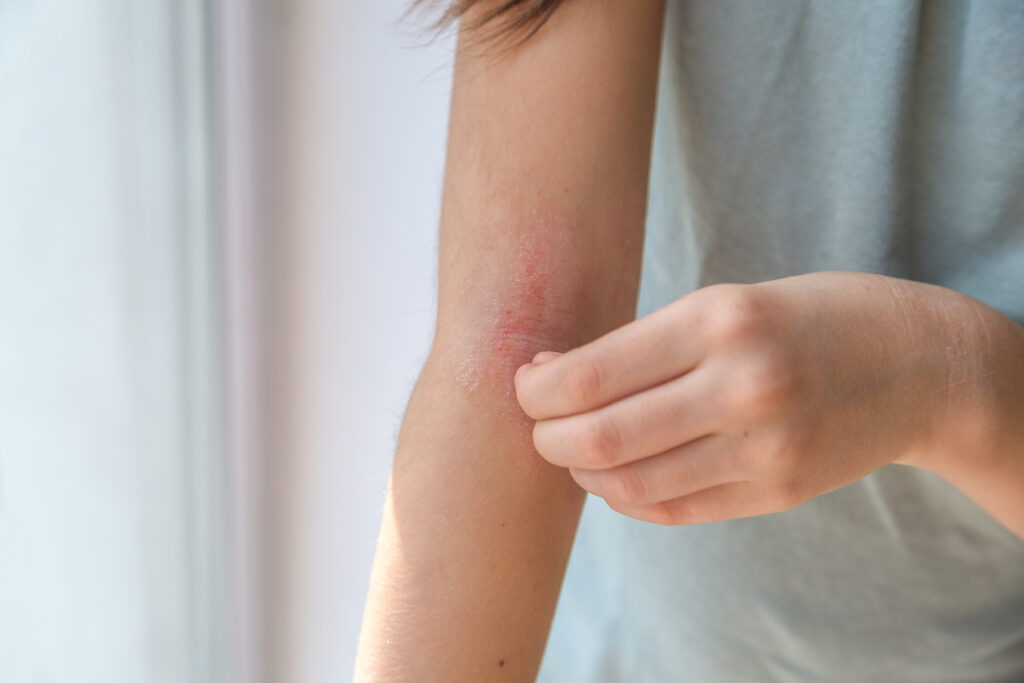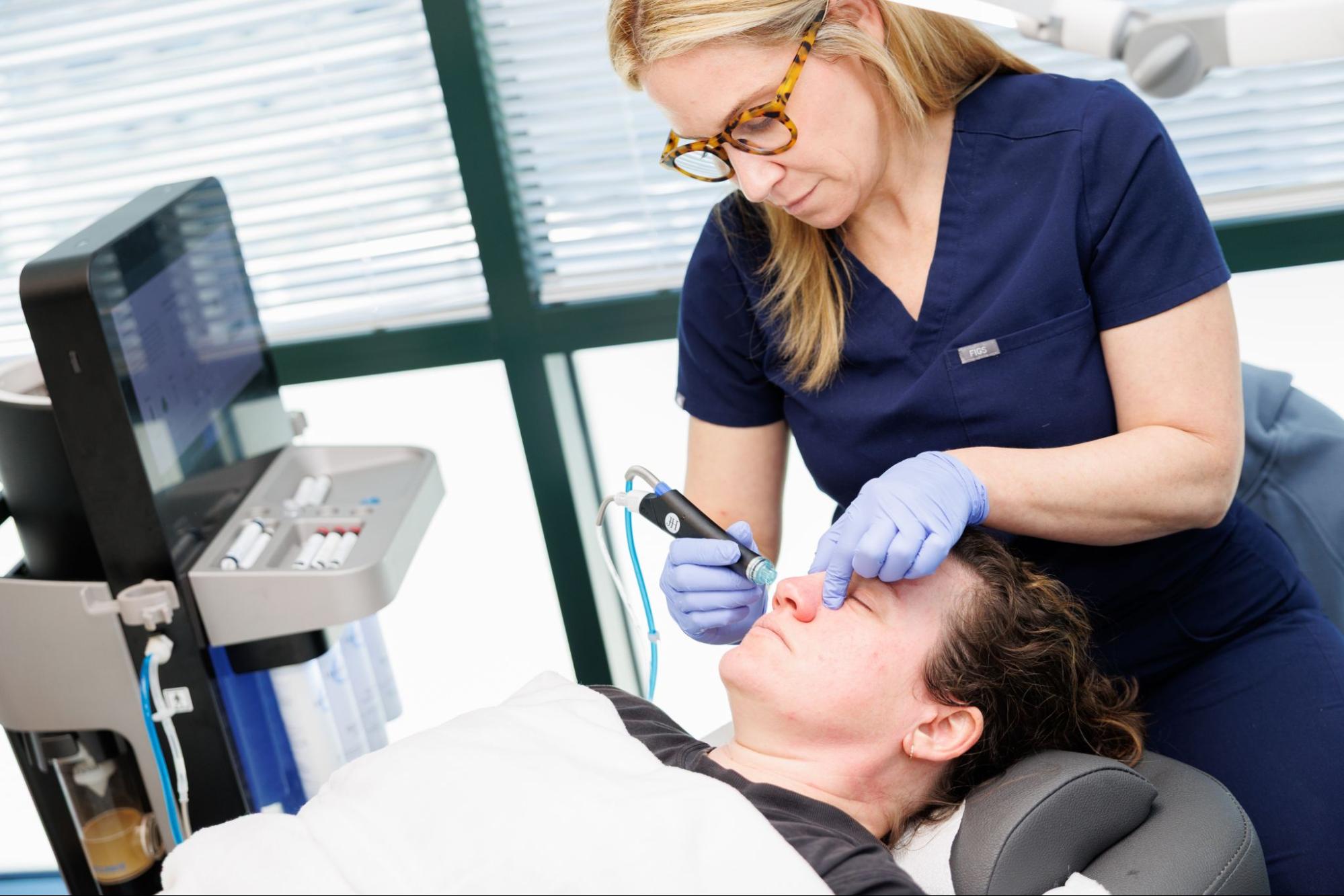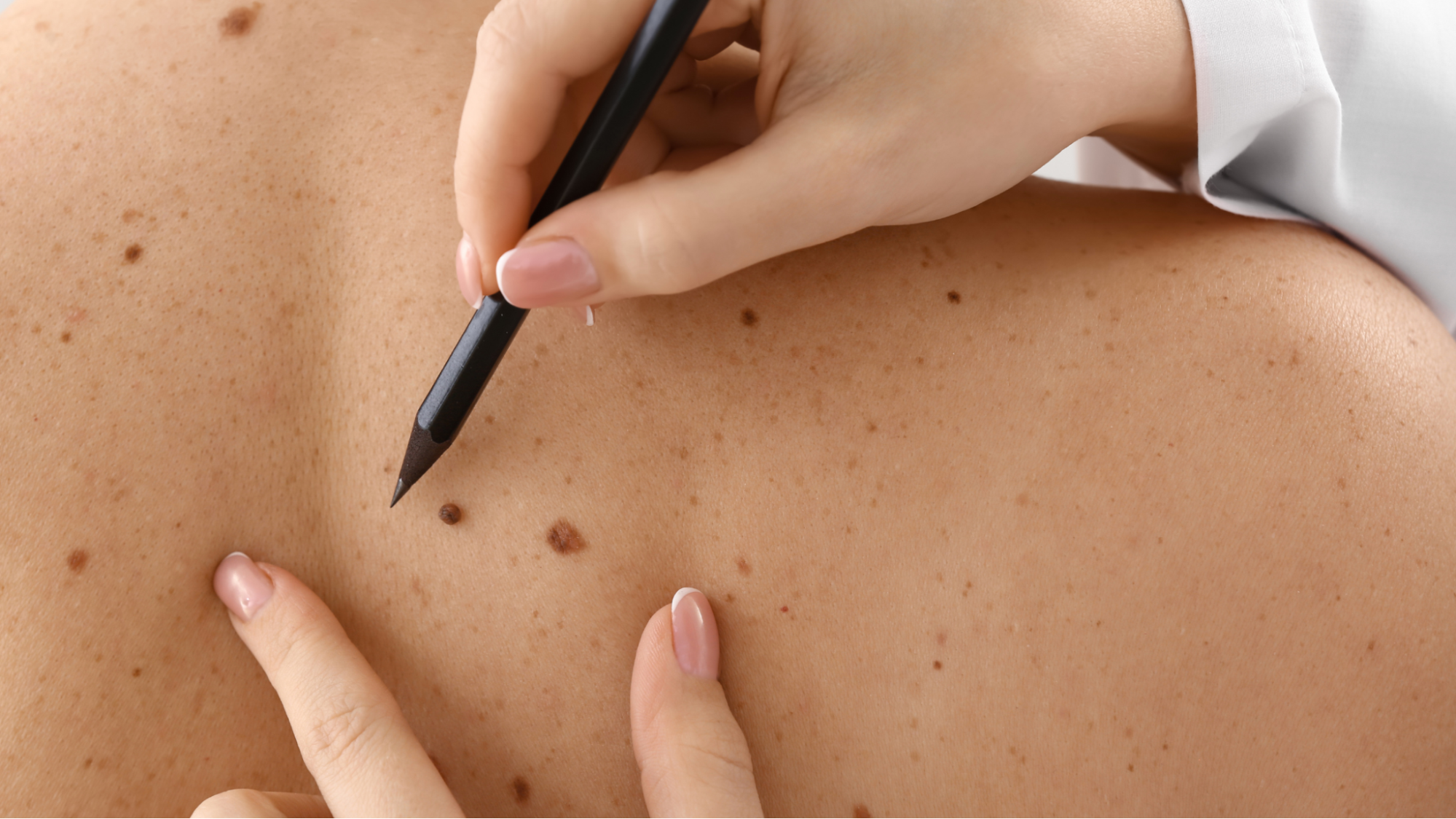Welcome to Eczema Awareness Month! Whether you or a loved one is affected by eczema, understanding this common skin condition can make a world of difference. Eczema, also known as atopic dermatitis, touches the lives of millions of people around the globe. By grasping the basics, you can manage the condition more effectively and improve your quality of life. Let’s explore the symptoms, causes, and types of eczema you might encounter.
Symptoms of Eczema
Eczema symptoms can vary widely, but some common signs include:

- Itchy Skin: Persistent itching is often the most bothersome and relentless symptom, making it hard to focus on daily activities.
- Red or Brownish Patches: These may appear on various parts of the body, including hands, feet, ankles, wrists, neck, upper chest, eyelids and the bends of the elbows and knees.
- Dry, Sensitive Skin: The skin can become excessively dry, sensitive and prone to cracking, which can be uncomfortable and sometimes painful.
- Swelling: Inflammation can cause the affected areas to swell, adding to the discomfort.
- Small, Raised Bumps: These may leak fluid and crust over when scratched, making the skin appear rough and uneven.
- Thickened, Scaly Skin: Chronic scratching can lead to thickened, leathery patches, which can be both unsightly and uncomfortable.
Causes of Eczema
While the exact cause of eczema remains a mystery, several factors are believed to play a role:

- Genetics: If eczema, allergies, or asthma run in your family, you have a higher likelihood of developing the condition.
- Immune System: An overactive immune response to irritants or allergens can trigger eczema flare-ups.
- Environmental Factors: Exposure to allergens, pollutants, and harsh weather conditions can exacerbate symptoms, making it essential to be mindful of your surroundings.
- Stress: Emotional stress can trigger or worsen eczema outbreaks, so managing stress is crucial.
- Skin Barrier Dysfunction: A compromised skin barrier allows moisture to escape and bacteria and irritants to enter, worsening the condition.
Types of Eczema
Eczema comes in several forms, each with its own unique characteristics:
- Atopic Dermatitis: The most common form, often linked with other allergic conditions like asthma and hay fever.
- Contact Dermatitis: Caused by direct contact with irritants or allergens, leading to localized skin reactions.
- Dyshidrotic Eczema: Characterized by small, itchy blisters on the edges of the fingers, toes, palms and soles.
- Nummular Eczema: Appears as round, coin-shaped spots on the skin, often triggered by dry skin.
- Seborrheic Dermatitis: Affects areas with a lot of oil glands, like the scalp and face, causing scaly patches and dandruff.
- Stasis Dermatitis: Occurs on the lower legs and is related to poor blood flow, often seen in older adults.
Understanding these aspects of eczema is essential for managing the condition effectively. Recognizing the symptoms and potential triggers can help you take proactive steps to alleviate discomfort and prevent flare-ups.
Keep an eye out for more updates this month as we delve deeper into eczema awareness and share practical advice for managing the condition. Empowering yourself with the right information is the first step toward healthier skin and at Georgia Skin Specialists, we can help you achieve the comfort and confidence that come with well-managed skin health.








